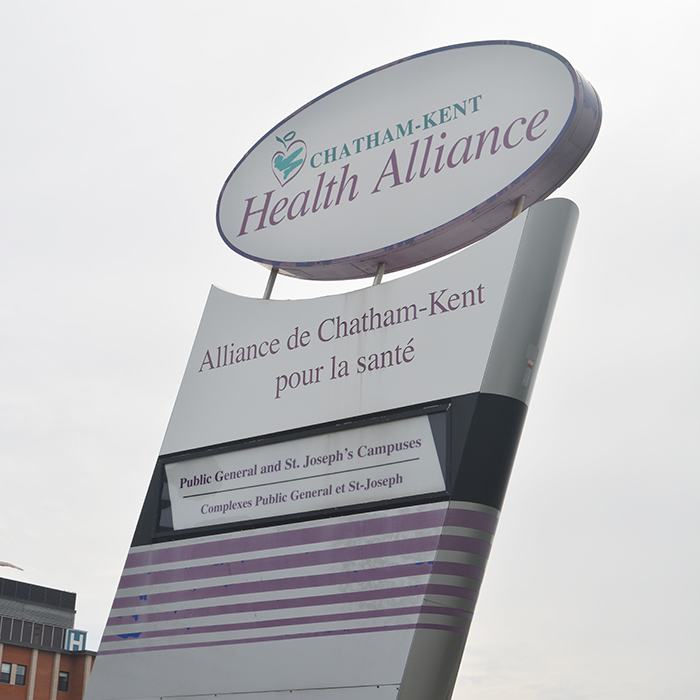
Registered nurses (RNs) working at the Chatham-Kent Health Alliance (CKHA) believe that the loss of 12 full-time and two part-time RN positions and bed closures will have a significant impact on safe, quality patient care — particularly in the area of women’s and children’s services — and will result in less access to emergency care.
“It is outrageous for the CKHA management to believe that the way to resolving budgetary issues is to cut services, close beds and lay off front-line RNs. Nurses know this will compromise safe, quality patient care. Health-care employers must stop trying to balance their budgets on the backs of our dedicated and highly skilled RNs,” said ONA First Vice-President Vicki McKenna in a news release.
Nursing positions marked for elimination include:
- Five full-time RNS in the Women and Children’s Department, Chatham campus, including a lactation consultant. As well, there will be a decrease in beds from 12 to eight.
- Five full-time and two part-time RN positions cut in the emergency department.
- Two full-time RN positions cut in the medical unit, with beds decreased from 54 to 49.
Cutting these positions will mean the loss of more than 25,000 hours of direct hands-on RN patient care.
“Research shows that there is devastating impacts on our patients and our ability to provide safe, high-quality care when RN hours are cut. Patients are more likely to experience complications, increased infections, higher morbidity and mortality rates and re-admissions, longer wait times and poorer health outcomes,” said McKenna. “The research is clear: Ontario needs more RNs, not fewer. The government and hospitals need to stop closing beds and cutting RNs.”
Ontario continues to have the worst RN-to-population ratio in all of Canada, ONA officials say. According to the latest statistics from the Canadian Institute for Health Information (CIHI), Ontario has 703 RNs per 100,000 population compared to an average of 839 per 100,000 for the rest of the country. This is a direct result of Ontario hospitals balancing their budgets at the expense of RN care.
“We ask the public to contact their MPPs and ask them if they are going to stand up for safe care, not cuts. Our patients deserve better,” said McKenna.






